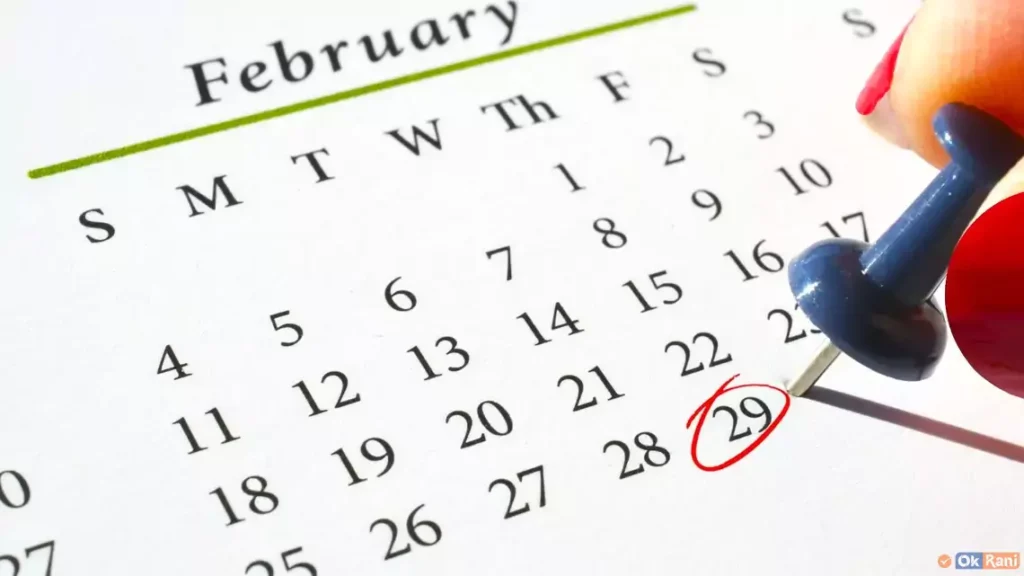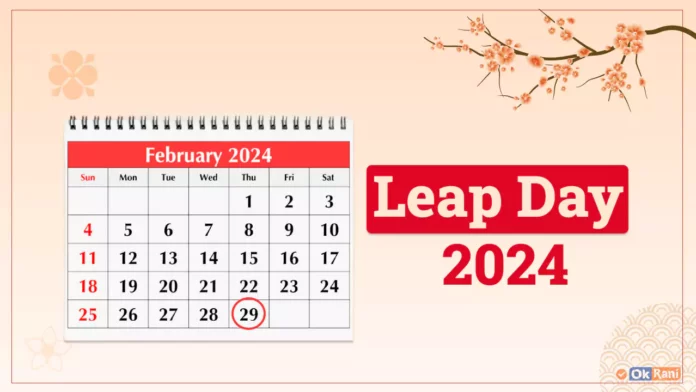February 29 is not there on our calendars for no good reason. It is called a leap day, and it is added every four years. People welcome it with excitement because it only comes around once in a while. This special day adds to the fun of February, giving us a chance to make memories and celebrate in different ways.
But there’s more to February 29 than just being a rare occurrence. It plays an important role in keeping our calendars in line with the Earth’s orbit. Without the leap day, the seasons could get mixed up, and events like the equinoxes and solstices might not happen when they are supposed to. Imagine if summer came in November! The months would not be able to tell us what season it is anymore.
So, the leap day is like a special adjustment that helps keep everything in order. It is a day that reminds us of the wonders of our planet’s orbit and the importance of keeping time in sync with nature.
Table of Contents
History of Leap Day

In ancient times, people relied on the position of the sun to decide when to plant and harvest crops. However as societies grew, there was a need for a more organized calendar. In 45 BC, Julius Caesar introduced the Julian Calendar, which included an extra day every year. This idea was based on an Egyptian concept.
However, there was a mistake in Caesar’s calculations. He underestimated the length of a solar year by about 11 minutes. Over time, this small error added up, causing the calendar to drift off by about eight days every thousand years. This meant that the seasons didn’t match up properly.
To fix this issue, Pope Gregory XIII introduced the Gregorian Calendar in the 16th century. This calendar still had leap days, but they were added in years divisible by four, except for those divisible by 100. However, years divisible by 400 were still given a leap day. This adjustment helped to realign the calendar with the seasons, ensuring that our calendar stays accurate over time.
Significance
The reason we have a leap day is that Earth takes about 365.242190 days to go around the sun, but our calendar only has 365 days in a year. This extra time, which is about 5 hours, 48 minutes, and 56 seconds, needed to be accounted for to keep our seasons and annual events on track.
But leap years don’t come every four years as you might think. This is because the difference between a calendar year and the actual time it takes for Earth to orbit the sun is about 23.262222 hours, not exactly 24 hours. Adding a leap day every four years could make the calendar too long by over 44 minutes, which could mess up the seasons. That’s why leap years skip every 100 years, except if that year is divisible by 400.
This system helps our calendar stay in sync with the seasons, so they don’t drift too much over time. It is a way to make sure our days, months, and years match up as closely as possible with the natural rhythm of the Earth’s orbit around the sun.
Unknown Facts About Leap Day
Julius Caesar, a leader of ancient Rome, came up with the idea of Leap Day for the Julian calendar way back in 45 BCE. But at that time, the extra day was added on February 24, not February 29. February was the last month in the Julian calendar.
In China, there is a unique tradition where they sometimes add an extra month to their calendar. The most recent time this happened was in 2015. Leap day used to be a special day when people would switch roles. It was a day when women could propose to men instead of the usual way around. However, this tradition slowly faded away as ideas about gender roles changed over time.
Babies born on Leap Day have a special name, they are called leaplings or leap year babies. They usually celebrate their birthday on February 28 or March 1 during years that are not leap years. Considering the entire world’s population, the chance of being born on Leap Day is quite rare. It’s only about 1 in 1461.
There are two places in the world known as Leap Year capitals, Anthony, Texas, and Anthony, New Mexico. These towns host big, multi-day celebrations every Leap Day to mark the occasion.
1. Who invented leap day?
Julius Caesar made the Julian Calendar in 45 BC. He added an extra day to it every year. He got this idea from the Egyptians, but he didn’t calculate it exactly right. Caesar thought a year was a little longer than it was. So, he made the calendar too long by about 11 minutes each year. This made the calendar get ahead by about eight days every thousand years.
2. Is leap day good luck?
According to the Almanac, if you’re born on a leap day during a leap year, you’re called a “leapling.” Some cultures think having this birthday brings good luck.
3. What is the leap formula?
To check if a year is a leap year, divide it by 4. If it divides evenly, it’s a leap year. For century years like 300, 700, 1900, and 2000, divide them by 400 to see if they’re leap years.
4. Why is February a leap year?
The reason for a leap year is Earth’s journey around the sun. It takes about 365 days, 5 hours, 48 minutes, and 45 seconds to complete one orbit. So, every four years, we add an extra day to the calendar to make up for that extra time. Since February only has 28 days, we put the extra day there.
5. Why do we need leap day?
If we didn’t have leap years, the Fourth of July would eventually happen in the winter. Leap days, which are added at the end of February every four years, make sure our calendars stay matched up with Earth’s orbit, explained Shauna Edson, who teaches astronomy at the National Air and Space Museum.

